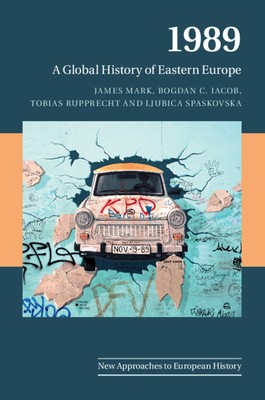
- We will send in 10–14 business days.
- Author: James Mark
- Publisher: Cambridge University Press
- ISBN-10: 1108447147
- ISBN-13: 9781108447140
- Format: 16.3 x 22.8 x 2.1 cm, minkšti viršeliai
- Language: English
- SAVE -10% with code: EXTRA
Reviews
Description
The collapse of the Berlin Wall has come to represent the entry of an isolated region onto the global stage. On the contrary, this study argues that communist states had in fact long been shapers of an interconnecting world, with '1989' instead marking a choice by local elites about the form that globalisation should take. Published to coincide with the thirtieth anniversary of the 1989 revolutions, this work draws on material from local archives to international institutions to explore the place of Eastern Europe in the emergence, since the 1970s, of a new world order that combined neoliberal economics and liberal democracy with increasingly bordered civilisational, racial and religious identities. An original and wide-ranging history, it explores the importance of the region's links to the West, East Asia, Africa, and Latin America in this global transformation, reclaiming the era's other visions such as socialist democracy or authoritarian modernisation which had been lost in triumphalist histories of market liberalism.
EXTRA 10 % discount with code: EXTRA
The promotion ends in 22d.07:12:11
The discount code is valid when purchasing from 10 €. Discounts do not stack.
- Author: James Mark
- Publisher: Cambridge University Press
- ISBN-10: 1108447147
- ISBN-13: 9781108447140
- Format: 16.3 x 22.8 x 2.1 cm, minkšti viršeliai
- Language: English English
The collapse of the Berlin Wall has come to represent the entry of an isolated region onto the global stage. On the contrary, this study argues that communist states had in fact long been shapers of an interconnecting world, with '1989' instead marking a choice by local elites about the form that globalisation should take. Published to coincide with the thirtieth anniversary of the 1989 revolutions, this work draws on material from local archives to international institutions to explore the place of Eastern Europe in the emergence, since the 1970s, of a new world order that combined neoliberal economics and liberal democracy with increasingly bordered civilisational, racial and religious identities. An original and wide-ranging history, it explores the importance of the region's links to the West, East Asia, Africa, and Latin America in this global transformation, reclaiming the era's other visions such as socialist democracy or authoritarian modernisation which had been lost in triumphalist histories of market liberalism.


Reviews